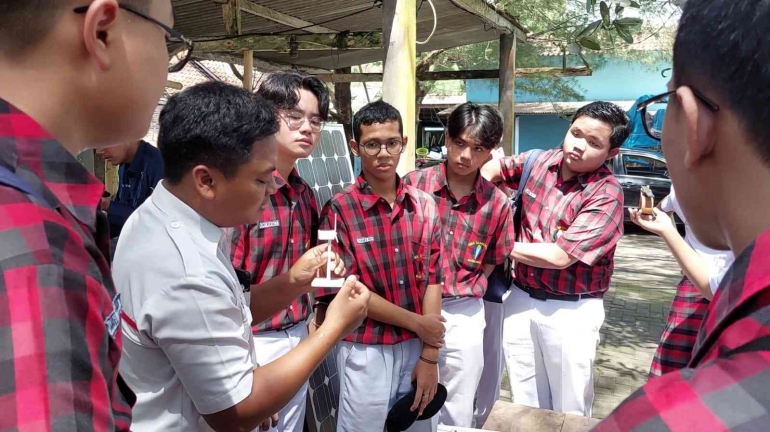Moreover, the teacher's role is to provide guidance and feedback on making conclusions and inferences. They should ensure that students understand the criteria used to draw conclusions and make inferences. Teachers should also ensure that students are aware of the limitations of the data and information they used to draw conclusions.
Finally, the students' role in this stage is to draw conclusions and make inferences based on the data and information analyzed. They should present their conclusions and inferences in a clear and organized manner, highlighting the evidence and reasoning that led to their conclusions. Students should also reflect on the implications of their conclusions and consider how their findings relate to real-world situations.
5. Reporting
The final stage in research-based teaching is Reporting. This stage involves communicating the research findings to others. The teacher's role is to provide guidance and feedback on effective communication, while the students' role is to communicate their research findings effectively.
To begin with, teachers should help students develop skills in presenting their research findings through various formats, such as written reports, oral presentations, or multimedia presentations. Teachers should guide students on how to organize their research findings and present them in a clear and coherent manner. They should also provide guidance on selecting appropriate communication formats for their target audience and purpose.
Furthermore, teachers should guide students in evaluating the effectiveness of their communication. They should provide feedback on the clarity, coherence, and effectiveness of the communication, and help students identify areas for improvement. This helps students to refine their communication skills and effectively present their research findings to different audiences.
Moreover, the teacher's role is to provide guidance and feedback on effective communication. They should ensure that students understand the purpose and objectives of their communication, and that they are communicating their research findings in a way that is clear, concise, and engaging. Teachers should also encourage students to use evidence-based arguments and communicate their ideas effectively.
Finally, the students' role in this stage is to communicate their research findings effectively. They should present their research findings in a clear and organized manner, highlighting the evidence and reasoning that led to their conclusions. Students should also consider their target audience and purpose and select appropriate communication formats to effectively convey their findings. They should use evidence-based arguments and communicate their ideas effectively.
B. Research-Based School Movement
According to Michael Fullan (2007), a well-known educational change expert, there are several things that need to be in place for research-based teaching by individual teachers to evolve into a research-based school movement. These are: Leadership, Collaborative Culture, Data-driven Decision-Making, Professional Learning, and Student-Centered Approach.
1. Leadership
It emphasizes the importance of strong leadership in promoting research-based teaching and creating a culture of continuous learning and improvement in schools. Effective leaders provide a clear vision for the school and create an environment that encourages research-based teaching by providing necessary resources and support to teachers. For instance:
- A principal who values research-based teaching may set up a professional development program that focuses on building teachers' knowledge and skills in research-based teaching.
- The principal may also provide resources such as funding for research projects, access to data analysis tools, and technology resources to support research-based teaching.
- A principal may prioritize research-based teaching in the school's strategic plan and set goals for teachers to engage in research-based practices and monitor progress towards these goals.
- The principal may create a culture of continuous learning and improvement by encouraging teachers to share their experiences and knowledge through collaborative teams, meetings, and conferences.
In summary, leadership plays a critical role in promoting research-based teaching, and effective leaders provide a clear vision, necessary resources, and support to teachers.
2. Collaborative Culture
It emphasizes the importance of a collaborative culture in promoting research-based teaching. Teachers should work together to share their experiences, knowledge, and best practices in research-based teaching. Collaboration helps to create a culture of trust and shared responsibility for student learning by promoting peer learning, problem-solving, and innovation. For instance:
- Teachers may form research teams to explore specific research questions, collect data, and analyze results collaboratively. This provides opportunities for teachers to share their expertise and learn from each other's experiences.
- Collaborative work also involves sharing lesson plans, instructional strategies, and assessment methods that align with research-based practices. This sharing helps to enhance the effectiveness of research-based teaching and promote the adoption of best practices.
- Teachers may also participate in professional learning communities to discuss research-based teaching and share their experiences. Such communities create opportunities for teachers to engage in reflective practice, receive feedback on their teaching, and collaborate on projects.







